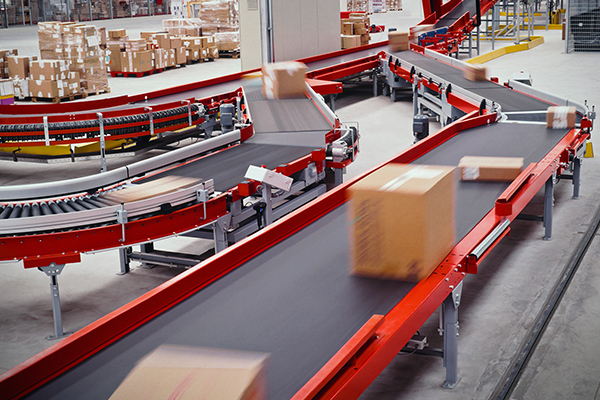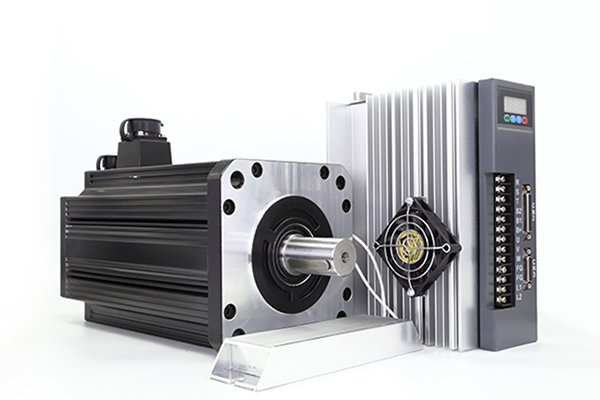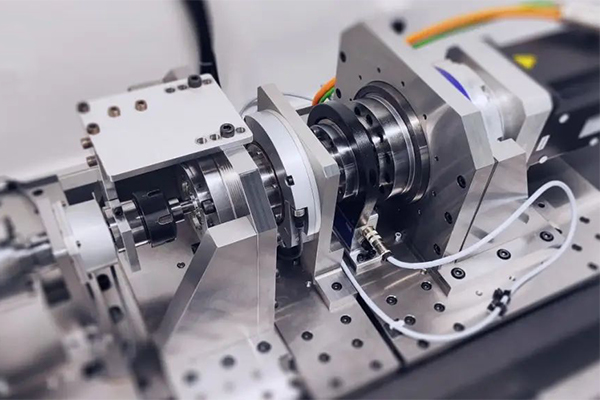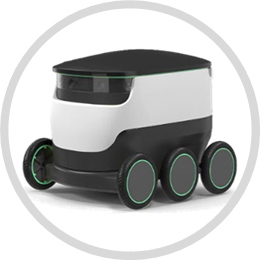Home » Application » Servo Motor in Food Industry
Servo Motor in Food Industry
In the ever-evolving landscape of the food industry, technological advancements play a pivotal role in enhancing efficiency, precision, and overall productivity. One such technology that has gained prominence is the use of servo motors. Servo motors have found widespread applications in various sectors, and the food industry is no exception. This article explores the significance of servo motors in the food industry.
Applications in Food Processing:
Conveyor Systems. Servo motors play a crucial role in conveyor systems within food processing plants. These motors enable precise control of the conveyor speed, ensuring a smooth and consistent flow of raw materials, intermediate products, and finished goods. This not only enhances efficiency but also minimizes the risk of product damage or wastage.

Packaging Machinery. In the packaging stage, accuracy is vital to prevent overfilling or underfilling of products. Servo motors drive the mechanisms responsible for filling, sealing, and labeling, providing precise control over these processes. This accuracy contributes to maintaining product quality, meeting regulatory standards, and reducing packaging material waste.

Sorting and Grading. Servo motors are employed in sorting and grading systems for fruits, vegetables, and other food products. The motors facilitate the precise movement of sorting mechanisms, ensuring that each item is accurately classified based on size, shape, or other criteria. This level of precision is essential in maintaining product consistency and quality.

Baking and Cooking Processes. In the food preparation phase, servo motors are utilized in baking and cooking equipment. These motors control the temperature, speed, and other parameters with high accuracy, leading to consistent and repeatable results. This is particularly important in large-scale food production where uniformity is crucial.

Advantages of Servo Motors in the Food Industry:
Applications in Food Processing:
Conveyor Systems. Servo motors play a crucial role in conveyor systems within food processing plants. These motors enable precise control of the conveyor speed, ensuring a smooth and consistent flow of raw materials, intermediate products, and finished goods. This not only enhances efficiency but also minimizes the risk of product damage or wastage.

Packaging Machinery. In the packaging stage, accuracy is vital to prevent overfilling or underfilling of products. Servo motors drive the mechanisms responsible for filling, sealing, and labeling, providing precise control over these processes. This accuracy contributes to maintaining product quality, meeting regulatory standards, and reducing packaging material waste.

Sorting and Grading. Servo motors are employed in sorting and grading systems for fruits, vegetables, and other food products. The motors facilitate the precise movement of sorting mechanisms, ensuring that each item is accurately classified based on size, shape, or other criteria. This level of precision is essential in maintaining product consistency and quality.

Baking and Cooking Processes. In the food preparation phase, servo motors are utilized in baking and cooking equipment. These motors control the temperature, speed, and other parameters with high accuracy, leading to consistent and repeatable results. This is particularly important in large-scale food production where uniformity is crucial.

Advantages of Servo Motors in the Food Industry:
- Precision and Accuracy. The hallmark of servo motors is their ability to provide precise and accurate control. In the food industry, where quality control is paramount, this characteristic ensures consistent product quality and adherence to regulatory standards.
- Flexibility. Servo motors are highly versatile and can be easily programmed to adapt to different processes and production requirements. This flexibility is advantageous in a dynamic industry like food processing, where product variations and market demands are constantly changing.
- Energy Efficiency. Servo motors are known for their energy efficiency. Unlike traditional motors that operate at a constant speed, servo motors only consume energy as needed, resulting in reduced overall energy consumption. This aligns with the growing emphasis on sustainability in the food industry.
- Reduced Downtime. The feedback mechanisms in servo motors enable real-time monitoring and adjustments, reducing the likelihood of equipment failures and downtime. This reliability is crucial in maintaining continuous production and meeting tight deadlines in the food industry.
Post a Comment:
You may also like:

Category
Featured Articles
Servo Motor in Medical Industry
 With the continuous development of technology, servo motors are being used more and more widely in medical equipment. Servo ...
With the continuous development of technology, servo motors are being used more and more widely in medical equipment. Servo ...
 With the continuous development of technology, servo motors are being used more and more widely in medical equipment. Servo ...
With the continuous development of technology, servo motors are being used more and more widely in medical equipment. Servo ...Servo System in CNC Machine Tools
 As the actuator of CNC machine tools, servo system integrates power electronics, control, drive and protection, and with the ...
As the actuator of CNC machine tools, servo system integrates power electronics, control, drive and protection, and with the ...
 As the actuator of CNC machine tools, servo system integrates power electronics, control, drive and protection, and with the ...
As the actuator of CNC machine tools, servo system integrates power electronics, control, drive and protection, and with the ...Equation Derivation for Servo Motor
 In the analysis of electric servo drive motors , the equations for the motor indicates the presence of two time constants. One is ...
In the analysis of electric servo drive motors , the equations for the motor indicates the presence of two time constants. One is ...
 In the analysis of electric servo drive motors , the equations for the motor indicates the presence of two time constants. One is ...
In the analysis of electric servo drive motors , the equations for the motor indicates the presence of two time constants. One is ...Servo Drives for Electric Mobility
 Servo drives play a crucial role in electric mobility applications, providing precise control of electric motors for various ...
Servo drives play a crucial role in electric mobility applications, providing precise control of electric motors for various ...
 Servo drives play a crucial role in electric mobility applications, providing precise control of electric motors for various ...
Servo drives play a crucial role in electric mobility applications, providing precise control of electric motors for various ...Servo Motor in Food Industry
 In the ever-evolving landscape of the food industry, technological advancements play a pivotal role in enhancing efficiency, ...
In the ever-evolving landscape of the food industry, technological advancements play a pivotal role in enhancing efficiency, ...
 In the ever-evolving landscape of the food industry, technological advancements play a pivotal role in enhancing efficiency, ...
In the ever-evolving landscape of the food industry, technological advancements play a pivotal role in enhancing efficiency, ...